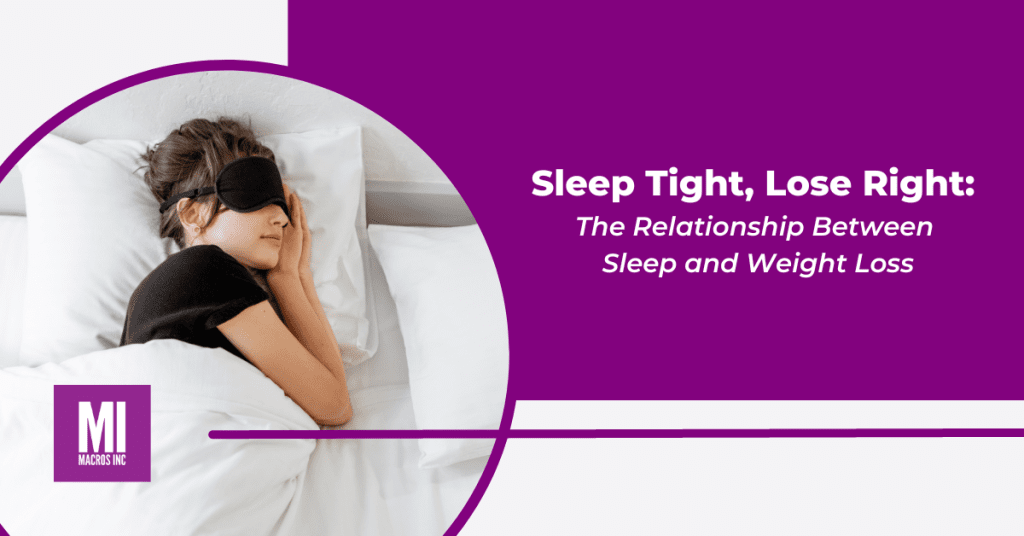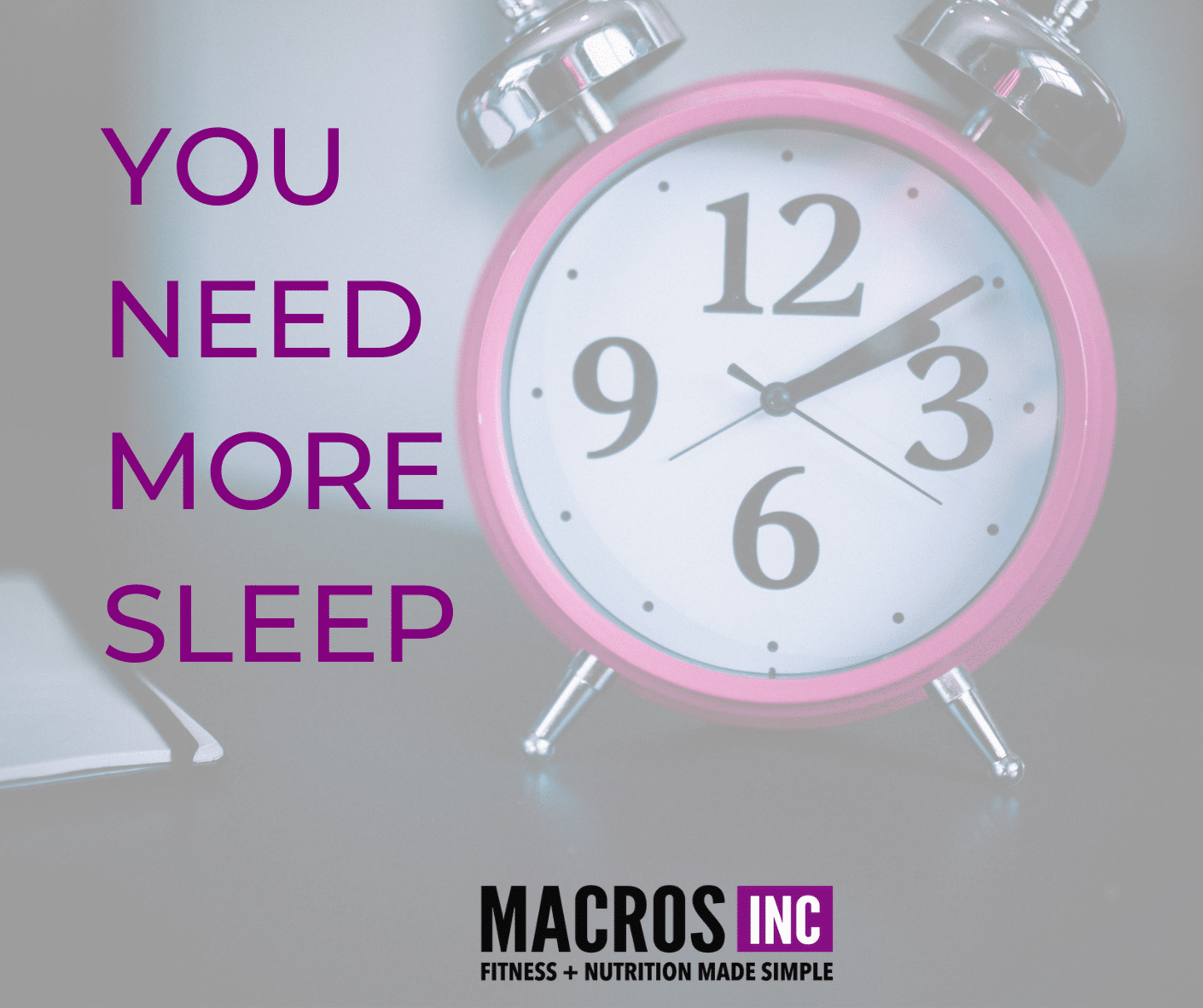Have you ever considered the impact of sleep on your weight loss efforts beyond just feeling fatigued during the day?
Adequate sleep plays a crucial role in regulating hormones that control hunger and satiety, affects metabolism, and can contribute to overeating and weight gain. However, inadequate sleep can also cause increased inflammation, reduced insulin sensitivity, increased stress levels, impaired decision-making, disrupted gut microbiome, and an increased appetite for high-calorie foods.
In this blog post, we’ll delve into the fascinating relationship between sleep and weight loss, exploring the effects on hormones and metabolism, and provide practical tips for improving sleep quality to help you achieve your weight loss goals.
Jump to a Topic
How Does Sleep Affect Weight Loss?
Sleep plays a crucial role in regulating the hormones that control hunger and satiety. Ghrelin stimulates appetite, while leptin suppresses it. When you don’t get enough sleep, your ghrelin levels increase, making you feel hungrier, while your leptin levels decrease, making you feel less full.
This hormonal imbalance can lead to overeating and weight gain over time. A study published in the American Journal of Clinical Nutrition found that people who slept less than six hours a night had higher levels of ghrelin and lower levels of leptin than those who slept for eight hours or more. The participants who slept less also had a higher BMI (body mass index), indicating that lack of sleep can contribute to weight gain.
Another way sleep affects weight loss is through its effect on metabolism. Research has shown that sleep deprivation can slow down your metabolism, causing your body to burn calories more slowly. A study published in the Annals of Internal Medicine found that when people cut their sleep from 7.5 to 5.5 hours per night for two weeks, their metabolism slowed down, and they burned 400 fewer calories per day.
Furthermore, being tired and sleepy during the day can make it harder to exercise and stick to a healthy diet. A lack of energy can make it challenging to motivate yourself to go to the gym or cook a healthy meal, leading to less physical activity and more junk food consumption.
Can a Lack of Sleep Cause Weight Gain?
Sleep deprivation can have a significant impact on weight gain, beyond just feeling fatigued during the day. Research has found that sleep-deprived individuals tend to have a higher body mass index (BMI) than those who get enough sleep.
One reason for this link may be related to the brain’s reward centers. When we are sleep-deprived, our brains can become more responsive to the reward value of food. This means that high-calorie foods become more appealing, leading to overeating and weight gain.
In addition, sleep deprivation can increase stress levels, leading to the release of cortisol, a hormone that can cause the body to store fat, especially around the belly area. When we’re stressed, we also tend to reach for unhealthy, high-calorie foods, exacerbating the problem.
The Research
One study published in the journal Obesity found that women with higher cortisol levels had more visceral fat than those with lower cortisol levels, even after controlling for factors such as age, BMI, and physical activity levels.
Another study published in the Journal of Clinical Endocrinology and Metabolism found that men who were exposed to chronic stress had higher levels of visceral fat and insulin resistance than those who were not exposed to chronic stress.
Hormonal imbalances are also a key factor in the link between sleep deprivation and weight gain. Ghrelin, the hormone that stimulates appetite, increases when we are sleep-deprived, while leptin, the hormone that suppresses appetite, decreases. This hormonal imbalance can lead to overeating and weight gain over time.
Sleep deprivation can also impair decision-making and cognitive function, making it more challenging to make healthy choices about food. People who are sleep-deprived are more likely to reach for high-calorie, unhealthy foods, contributing to weight gain.
By understanding the many ways in which a lack of sleep can contribute to weight gain, you can take steps to improve your sleep habits and set yourself up for success in your weight loss journey.
How Many Hours of Sleep for Weight Loss?
So, how many hours of sleep do you need to lose weight? The answer varies depending on your age, lifestyle, and genetics, but most adults need between 7 and 9 hours of sleep each night. Getting less than 6 hours of sleep per night has been linked to increased risk of obesity and other health problems.
It’s also important to note that the quality of your sleep matters just as much as the quantity. If you’re constantly waking up throughout the night or not getting deep sleep, you may still feel tired even if you’ve been in bed for 8 hours.
Tips for Getting Enough Sleep for Weight Loss
- Stick to a regular sleep schedule: Try to go to bed and wake up at the same time every day, even on weekends. This helps regulate your body’s internal clock and improve the quality of your sleep.
- Create a relaxing bedtime routine: Establish a relaxing routine before bed, such as taking a warm bath, reading a book, or practicing relaxation techniques like meditation or deep breathing. This can help signal to your brain that it’s time to wind down and prepare for sleep.
- Avoid screens before bedtime: The blue light emitted by electronic devices can interfere with your body’s production of the sleep hormone melatonin. Try to avoid screens for at least an hour before bed, or use blue light-blocking glasses if you need to use a screen.
- Keep your bedroom dark, cool, and quiet: A cool, dark, and quiet environment is conducive to good sleep. Consider using blackout curtains, earplugs, or a white noise machine to block out any disruptive noise or light.
- Limit caffeine and alcohol consumption: Caffeine is a stimulant that can interfere with your ability to fall asleep, so try to avoid it in the afternoon and evening. Similarly, while alcohol can make you feel drowsy, it can disrupt your sleep later in the night, leading to poor sleep quality.
- Exercise regularly: Regular exercise can improve the quality of your sleep, but avoid exercising too close to bedtime as it can be stimulating and make it harder to fall asleep.
- Avoid napping during the day: While a short nap can be refreshing, taking long naps during the day can interfere with your ability to sleep at night.
By implementing these tips, you can improve the quality of your sleep and reap the benefits of better sleep health, including improved weight loss outcomes.
Take Away
The link between sleep and weight loss is complex but essential to consider when trying to lose weight. Lack of sleep can cause hormonal imbalances that lead to overeating, slow down metabolism, and make it harder to exercise and stick to a healthy diet.
On the other hand, getting enough quality sleep can help with weight loss efforts by promoting muscle recovery and repair after exercise, helping to build and maintain muscle mass, which is essential for a healthy metabolism, and reducing unhealthy food cravings.
Therefore, if you’re struggling to lose weight, it’s essential to prioritize getting enough quality sleep each night. Aim for 7-9 hours of sleep and focus on improving the quality of your sleep by creating a sleep-friendly environment and sticking to a regular sleep schedule.
By doing so, you can improve your hormone balance, boost your metabolism, and increase your energy levels, making it easier to achieve your weight loss goals.
In summary, understanding the link between sleep and weight loss is crucial for achieving optimal health and wellness. So, if you’re tired of feeling like a sleepy sloth during the day and a chubby chipmunk at night, it might be time to consider the impact of sleep on your weight loss efforts!
Try our nutrition coaching, for free!
Be the next success story. Over 30,000 have trusted Macros Inc to transform their health.
Simply fill out the form below to start your 14-day risk-free journey. Let's achieve your goals together!


